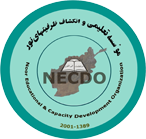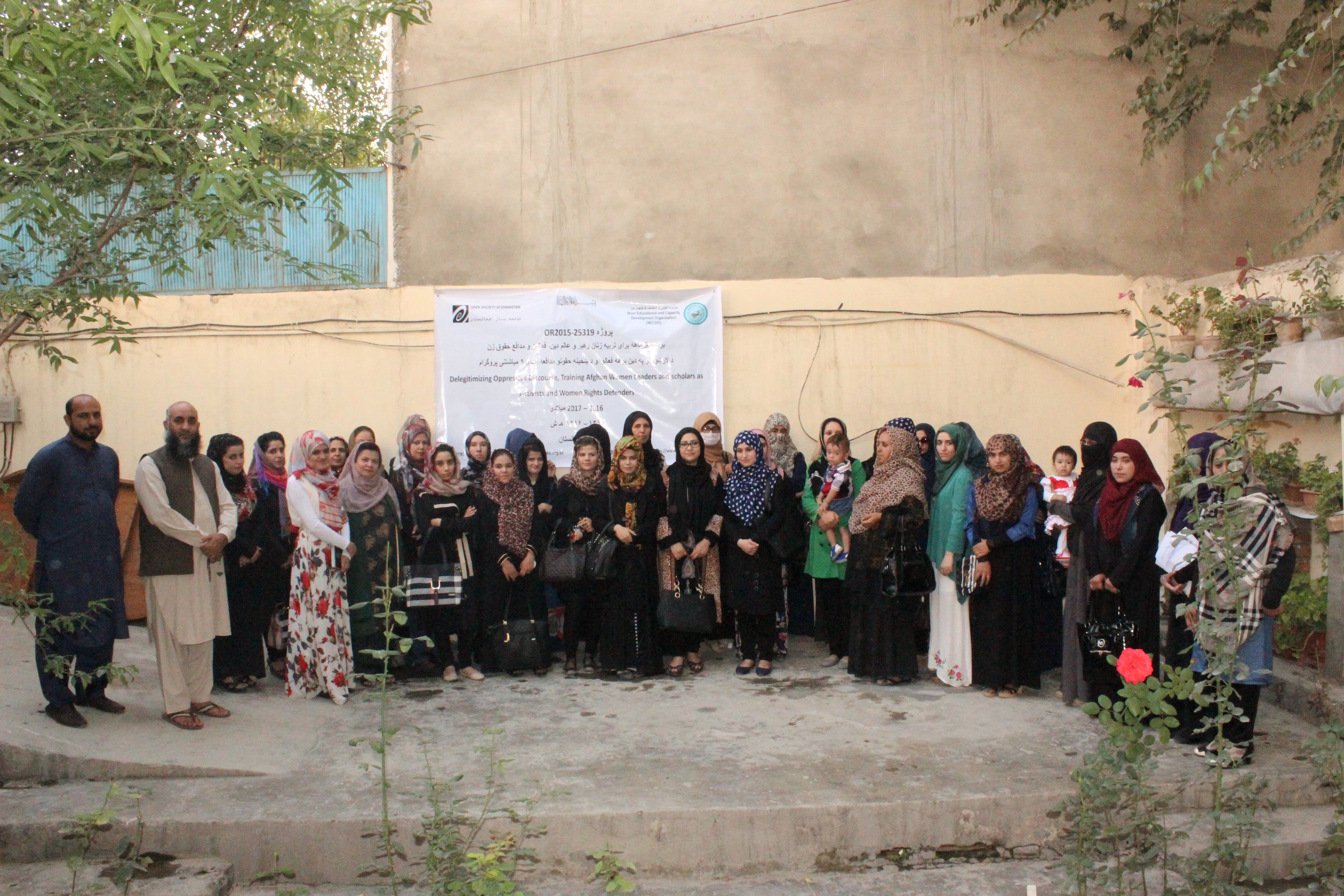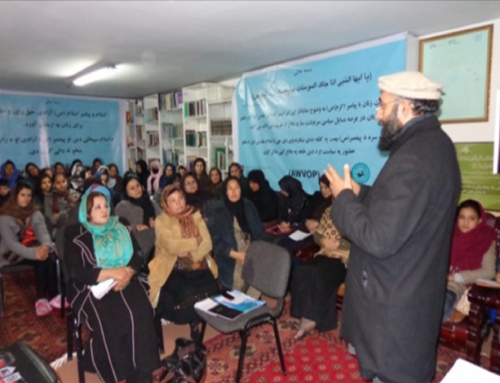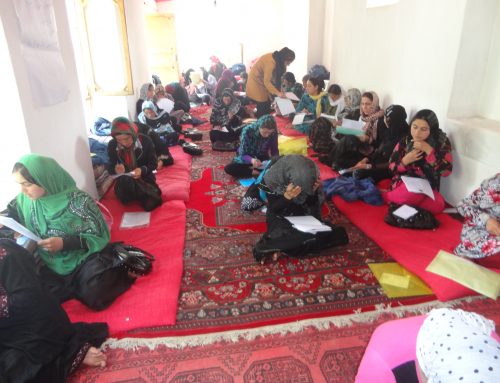- Executive Summary:
Afghanistan is a country where women’s right issues takes a step forward and two steps backwards due to cultural and social norms. In Afghanistan, religion is always used as a tool to legitimize patriarchy and the stopping of women from achieving their basic human rights The recent cases of Farkhunda and Zulaikha are stark examples of this conflict between the legal aspects of women’s right found in Islamic jurisprudence versus oral traditions inherited from previous extremist regimes and tribal hardliners. The aim is now to clarify this confusion and explicitly communicate and make public the content of women’s rights found in Islamic jurisprudence not just to women- but also to men, to civil society actors, to government bodies and also, international communities. The reality of Afghanistan remains that it is a country recovering from decades of war and violence, as well as religious extremist propaganda to justify holy wars and the war crimes against women in the wake of it. This can then be specified on a household level to domestic violence, child marriage, marital rape, child labor, selling of women to pay off debts, the exclusion of women from their family inheritance, as well as (when looked at from a broader lens) as lack of voice in social and political processes, lack of participation in peace negotiations, and lack of access to get education
To tackle this issue would require years of work and sustainable support, not just in the form of aid but also, in the form of participation from government and civil society actors, religious figures, male and female leaders, as well as male and female household heads. We have to engage with each of these different actors to utilize their potential contribution to create not only a more wholesome approach towards tackling women’s rights issues in Afghanistan, but also, in legitimizing it.
Currently all women’s rights issues are considered suspiciously as a western tool to modernize and secularize Afghanistan. This poses a huge obstacle for women empowerment projects because various actors across the country feel like the content and approach to the issue is usually one brought in from abroad and dictated in an attempt to “westernize” Afghanistan by corrupting the women. It is, therefore, that any projects pertaining to women empowerment first needs to be made Afghan. This means that we take advantage of the very thing Afghans value the most in such discussion: religious jurisprudence. By presenting women’s rights issue through a religious legal lens, we not only legitimize this discussion, but also empower it. What we are saying is that women’s rights is an issue of much importance within Islamic scripture and culture, and then tap into various networks within the Afghan civil society to legitimize and bring credibility to a discussion, making it an ‘Afghan’ issue.
There has already been some work done on this in some capacity- for example, the Imam Initiative Program carried out by NECDO in 2004, which resulted in the training of over 6000 Imams all across Afghanistan in issues of women’s rights and women empowerment. These Imams engaged with government officials, local and international civil society actors as well as tribal and household heads in their local provinces. The impact of this project has been massive. Imams who were not always informed of the true content of Islamic jurisprudence were exposed to a world of ‘moderate Islam’ via conferences and training programs with Imams and trainers from countries such as Indonesia (2011, 2013). Today, these Imams are passing on the knowledge that they have received through training classes to new Imam’s within their local mosques. In addition, their Friday Khutbas are primarily comprised of issues pertaining to women’s rights followed by religious advocacy of women empowerment processes. A project that was viewed with doubt and hesitance because of its sensitive nature and even more difficult target audience has become one of the biggest transformative stories in women’s rights empowerment processes in Afghanistan. Several Imams have given up their lives to the Taliban rather than retracting on their statements on women’s rights.
This project is an attempt to build on this foundation by now targeting a very important stakeholder in this process: women While men and patriarchy are rightfully blamed for the current lack of women’s empowerment in Afghanistan, we also need to recognize that women themselves have also served as a huge hindrance to women’s right processes by being either an active participant or a passive receiver of oppression, our aim is now to utilize our experience and resources from the Imam Initiative Project in a new capacity by educating women of their legal rights within the Islamic legal framework, our goal is take the first step towards graduating women from voiceless victims in need of advocacy to independent negotiators of their rights
We hope to achieve this by carrying out a pilot training project where we will bring forty 40 women leaders from different sectors and civil society organizations within Afghanistan to receive training on the legal aspects of their rights within Islamic legal framework.
The impact of this training is expected to achieve multiple things: first, to train and educate women of their legal rights in the country’s dominant religious legal framework; second, it gives them the training to debate and defend these rights in social, political and household settings; third, it gives them the skill to then pass on this training to women within their own social and professional networks; fourth, it gives them access to a support system in the form of a highly powerful and diverse networks of Imams, political leaders, civil society actors, international actors, and other female leaders, by creating this network we hope to provide these women with the social capital that will be imperative to provide sustainable support and legitimacy to their voice If a woman is at threat at home she can reach out to an Imam in the network to mediate and support her in her fight to achieve that right If a woman leader is going through abuse or sees a large-scale issue she cannot tackle on her own, this network will provide her with the contacts, resources, and also the trust and confidentiality to find a way to tackle that problem as a community, while utilizing the connections, knowledge, and resources of the diverse actors we hope to engage in this program
Luckily, we have some brilliant women activists, but they do not have enough information from Islamic perspectives about women rights, therefore, usually they are blamed as agents of West. From other side we have a large number of female graduates from Sharia, Law and Darul-Ulems and women working in the NGOs as women rights defenders, activists, but have very few information about women’s movement, gender & development or about International conventions to support women’s right. In Afghanistan, where a mixture of religion and cultural practices are very common and are the main reason for violence against women in our society.
NECDO is struggling for a democratic society where gender equality practiced and women enjoy equal rights and opportunities in all aspects of life such as our work with Imams Trainings Initiative Program on EVAW since 2007 and now we are working in 22 provinces with 6000 Imams. We are proud that our work has international recognition[1]. We believe that the Islamic teaching, which is used so far against women’s right in Afghanistan, will empower women activists with the right knowledge and experience to utilize as a tool to prevent violence against women and promote women’s right in our society. NECDO also has an extensive experience of building the capacity of women and men on issues related to women rights, gender, and Islam as well as women’s political, social and economic empowerment.
- Overview of the organization for which core support is sought
Noor Educational and Capacity Development Organization (NECDO) is a non-governmental, impartial and non-political organization, registered with Ministry of Economy in 2002 with INO.95. NECDO was established in January 2001 by a group of volunteers to help and support needy Afghan women, youth, and children, when the Afghan nation was passing through time-tested moments of its history in Peshawar Afghan Refugee Camps. NECDO started its activities with little means, but greatness of purpose, based on humanitarian and development assistance. We believe that unity, faith, proper mobilization of youth & empowerment of Afghan communities can reduce the miseries of the Afghan nation. During our social activities in camps, we realized the need for education, capacity building and income generation projects in order to help our nation with sustainable development; especially educating Afghan women, youth, and children were the priorities set forth; with the believe that it is better “to light a candle rather than curse the darkness” we initiated several projects and implemented them successfully
Our vision: To have a peaceful & prosperous Afghanistan through empowerment and polishing leadership potentials of women and youth in order to have skilled, professional human resource, and enhancement for a just society through advocacy initiatives
NECDO’s Mission: We lead for educated, skilled, and professional women & youth to create lasting solution to social injustice.
Our Goal: is to raise awareness and mobilize Afghans to eliminate differences types of discriminations and to work for peace.
NECDO’s Objectives:
- To empower women and youth as professional leaders for key positions, through conducting of capacity building programs
- To mobilize community influential leaders (women and men) and build their capacity as advocates for human rights specially for women’s rights
- To Empower Afghan women and youths towards sustainable social life and economic empowerment
- To conduct advocacy for a just society through networking and advocacy
NECDO’s Principles: Transparency, Impartiality, Unity, & Friendly relation with other sister organization




Leave A Comment